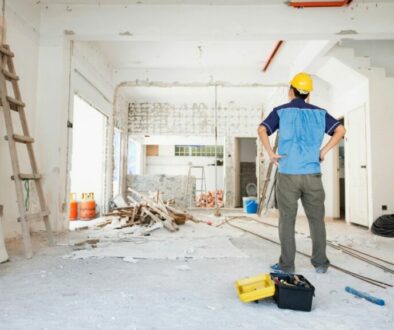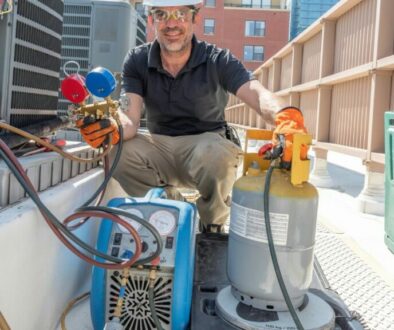Journeyman Plumber Exam
Becoming a journeyman plumber involves a rigorous training and certification process. After completing apprenticeship and gaining experience in the field, you must pass the journeyman plumber exam to become a licensed professional. In this article, we will guide you through the entire exam process.
Understanding the Journeyman Plumber Exam
Before diving into exam preparation, it’s essential to understand the purpose, eligibility requirements, and exam format of the journeyman plumber exam.
Purpose of the Exam
The journeyman plumber exam is designed to evaluate a candidate’s knowledge of the plumbing industry. It tests their skills in reading and interpreting blueprints, identifying and repairing plumbing issues, applying plumbing codes and regulations, and installing plumbing systems.
One of the primary purposes of the journeyman plumber exam is to ensure that plumbers have the necessary knowledge and skills to work safely and effectively. Plumbing work can be dangerous, and a lack of knowledge or skill could result in serious injury or damage to property.
Another purpose of the exam is to ensure that plumbers are up-to-date with the latest codes and regulations. Plumbing codes and regulations change frequently, and it’s essential that plumbers stay current with these changes to ensure that their work is legal and safe.
Eligibility Requirements
To be eligible to take the journeyman plumber exam, you must have completed an apprenticeship program that meets the state’s criteria. Some states require additional experience requirements or education to be met before taking the exam.
Completing an apprenticeship program is an excellent way to gain the knowledge and skills needed to pass the journeyman plumber exam. During an apprenticeship, you’ll work under the supervision of experienced plumbers and gain hands-on experience in all aspects of the plumbing industry.
Some states may also require you to have a certain number of hours of on-the-job experience before taking the exam. This requirement ensures that you have the necessary practical experience to work as a journeyman plumber.
Exam Format and Structure
The journeyman plumber exam typically consists of 80-100 multiple-choice questions. You will have three to four hours to complete the exam. Some exams may include hands-on components or practical assessments.
The multiple-choice questions on the exam will cover a wide range of topics related to the plumbing industry. You may be asked questions about plumbing codes and regulations, plumbing systems and components, safety procedures, and more.
Some exams may also include hands-on components or practical assessments. For example, you may be asked to identify and repair a plumbing issue or to install a plumbing system.
It’s essential to prepare thoroughly for the journeyman plumber exam to ensure that you pass on your first attempt. Consider taking a prep course or using study materials to help you prepare for the exam.
Preparing for the Exam
Now that you understand the exam’s purpose, requirements, and format, it’s time to focus on exam preparation. In this section, we will provide you with tips on studying materials and resources, creating a study schedule, and studying effectively.
Study Materials and Resources
There are numerous resources for study materials, including textbooks, study guides, online courses, and practice exams. Take time to research the resources that work best for you and your learning style. It is important to choose study materials that align with the exam’s content and format.
Textbooks are a great resource for in-depth study. They provide a comprehensive overview of the subject matter and can help you gain a deeper understanding of the concepts. Study guides, on the other hand, are designed to help you focus on the most important information. They often include summaries, review questions, and practice exams.
Online courses are also a great option for exam preparation. They offer the flexibility of self-paced learning and can be accessed from anywhere with an internet connection. Many online courses also include interactive elements such as quizzes and discussion forums.
Practice exams are an essential tool for exam preparation. They help you become familiar with the exam’s format and can highlight areas where you need to focus your study efforts. Practice exams are available in both print and digital formats.
Tips for Effective Studying
To study effectively, create a study plan, and keep a dedicated study space. Choose a quiet and comfortable space where you can focus on the material without distractions. Make sure your study space is well-lit and has all the necessary resources, such as textbooks, notes, and study guides.
Break the exam content into smaller sections and tackle each section one at a time. This will help you stay organized and focused. Use active learning strategies, such as summarizing the material in your own words or creating flashcards. Engage with the material and use mnemonics or acronyms to help memorize essential content.
It is also important to take breaks during your study sessions. Taking short breaks can help you stay refreshed and focused. Use your breaks to stretch, take a walk, or do something that helps you relax and recharge.
Creating a Study Schedule
Create a study schedule that works for you and your lifestyle. Allocate sufficient time for studying and stick to your schedule. An effective study schedule should include regular breaks and rewards for good study habits. For example, you could take a break after every hour of study or reward yourself with a treat after completing a challenging section.
Be realistic when creating your study schedule. Don’t try to cram too much into one day or week. Spread your study sessions out over a longer period of time to avoid burnout and fatigue. Remember, effective exam preparation is about quality, not quantity.
Exam Content and Topics
Knowing the exam content and topics is critical to tackling the journeyman plumber exam. The exam is designed to test your knowledge, skills, and ability to perform plumbing tasks safely and effectively. It covers a wide range of topics related to plumbing codes, regulations, systems, design, installation, repair techniques, and safety procedures.
As a journeyman plumber, you are expected to have a deep understanding of the plumbing industry and the various systems and components that make up plumbing systems. This includes knowledge of the materials used in plumbing, the tools and equipment required for installation and repair, and the safety procedures that must be followed to prevent accidents and injuries.
Plumbing Codes and Regulations
Questions related to plumbing codes and regulations make up a considerable portion of the exam. These codes and regulations are designed to ensure that plumbing systems are safe, reliable, and meet the needs of the community. As a journeyman plumber, you must be familiar with the state or local plumbing codes and regulations related to water supply, waste removal, and ventilation. You must also be able to interpret and apply these codes and regulations in real-world situations.
Plumbing Systems and Design
The journeyman plumber exam will test your knowledge of plumbing systems and design. This includes water distribution, drainage, venting, and piping. You will also encounter questions related to fixture installation and repair. A thorough understanding of plumbing systems and design is essential for a journeyman plumber, as it allows you to identify and troubleshoot problems quickly and effectively.
Installation and Repair Techniques
Questions focused on installation and repair techniques will also feature in the exam. These may include areas such as jointing techniques, piping materials, and tools. As a journeyman plumber, you must be skilled in a wide range of installation and repair techniques to ensure that plumbing systems are installed correctly and function properly. You must also be able to troubleshoot and repair plumbing systems efficiently to minimize downtime and prevent damage to property.
Safety Procedures and Best Practices
Safety is critical in the plumbing industry, and questions focusing on safety procedures and best practices will appear on the journeyman plumber exam. These may include safety concerns related to gas lines, confined spaces, electrical hazards, and working at heights. As a journeyman plumber, you must be aware of the potential hazards associated with plumbing work and take appropriate measures to ensure your safety and that of others.
The journeyman plumber exam covers a wide range of topics related to plumbing codes, regulations, systems, design, installation, repair techniques, and safety procedures. By studying these topics thoroughly and gaining practical experience in the field, you can become a skilled and knowledgeable journeyman plumber, capable of performing plumbing tasks safely and effectively.
Taking the Exam
Registering for the Exam
After you’ve completed your apprenticeship, meet all the eligibility criteria, and are ready to sit for the exam, it’s time to register. Contact the testing center or board responsible for conducting the exam to get registration information.
It is important to note that different states have different requirements for taking the journeyman plumber exam. Some states require that you have a certain amount of experience before you can take the exam, while others require that you complete a certain number of training hours.
Before registering for the exam, make sure you have met all the state-specific requirements. You don’t want to waste time and money by registering for an exam you are not eligible to take.
What to Expect on Exam Day
On exam day, arrive early at the testing center. Bring your ID to confirm your identity. The testing center will provide you with instructions and materials necessary for the exam.
It’s important to note that the journeyman plumber exam is a computer-based test. This means that you will need to have basic computer skills to navigate through the exam. If you are not comfortable using a computer, consider taking a basic computer skills course before the exam.
The exam is typically timed, and you will have a set amount of time to complete all the questions. Make sure you read and understand the instructions before starting the exam.
Time Management Strategies
Proper time management is critical when taking the journeyman plumber exam. Plan your time accordingly by budgeting time for each question, using the process of elimination, and tackling easier questions first.
It’s important to remember that you don’t have to answer every question in order. If you get stuck on a difficult question, move on to an easier one and come back to the difficult question later. This will help you maximize your time and increase your chances of answering more questions correctly.
Another time management strategy is to use the process of elimination. If you are unsure of the correct answer, eliminate the answers that you know are incorrect. This will increase your chances of selecting the correct answer.
Finally, don’t forget to take breaks during the exam. It’s important to give your brain a rest and recharge your energy. Use your breaks to stretch, walk around, and drink water.
After the Exam
Completing the journeyman plumber exam is a significant accomplishment. It’s a sign that you have the knowledge and skills necessary to work as a licensed plumber. However, the journey doesn’t end here. After the exam, there are several steps you need to take to ensure that you receive your results and understand what they mean.
Receiving Your Results
Once you’ve completed the exam, the waiting game begins. You’ll receive your scores in a few weeks, typically via mail or email. It’s essential to make sure that the board or testing center has your correct contact information to ensure that you receive your score report promptly.
When you receive your score report, take a moment to review it carefully. Make sure that all the information is correct, including your name, address, and social security number. If you notice any errors, contact the board or testing center immediately to have them corrected.
Understanding Your Score
It’s crucial to understand how the exam is graded to interpret your score correctly. Some states have a pass/fail system, while others provide scores. If your state provides scores, you need to earn a minimum score to pass the exam.
Understanding your score is also essential for future job opportunities. Employers may ask for your exam scores as part of the hiring process. Knowing your score and what it means can help you market yourself as a qualified plumber.
Retaking the Exam if Necessary
If you don’t pass the exam, don’t worry. Many people don’t pass on their first try. You may have the option to retake the exam. However, you’ll need to find out about the requirements or guidelines for retaking the exam in your state.
Before you retake the exam, take some time to review your score report and identify areas where you need to improve. Consider enrolling in a review course or studying with a tutor to help you prepare for the exam.
Remember, passing the journeyman plumber exam is just the beginning of your career as a licensed plumber. With hard work and dedication, you can build a successful career in this rewarding field.
Maintaining and Renewing Your License
After obtaining your license, you must continue to meet the state’s requirements for maintaining and renewing the license. This may include completing a certain number of continuing education courses each year or submitting paperwork to renew your license annually or bi-annually.
It is important to keep track of your license renewal date and ensure that you submit all required paperwork on time. Failure to renew your license on time may result in fines or even the suspension of your license.
Overall, becoming a licensed journeyman plumber requires hard work, dedication, and a commitment to lifelong learning. By meeting all the requirements for licensure and maintaining your license, you can build a successful career as a journeyman plumber and make a positive impact in your community.
Passing the journeyman plumber exam is a significant accomplishment and an essential step towards becoming a licensed journeyman plumber. The exam may be challenging, but by understanding the content, preparing effectively, and using time management strategies, you can pass the exam on your first attempt.




